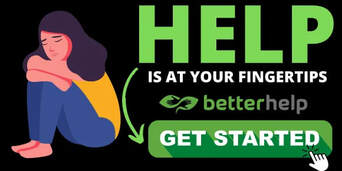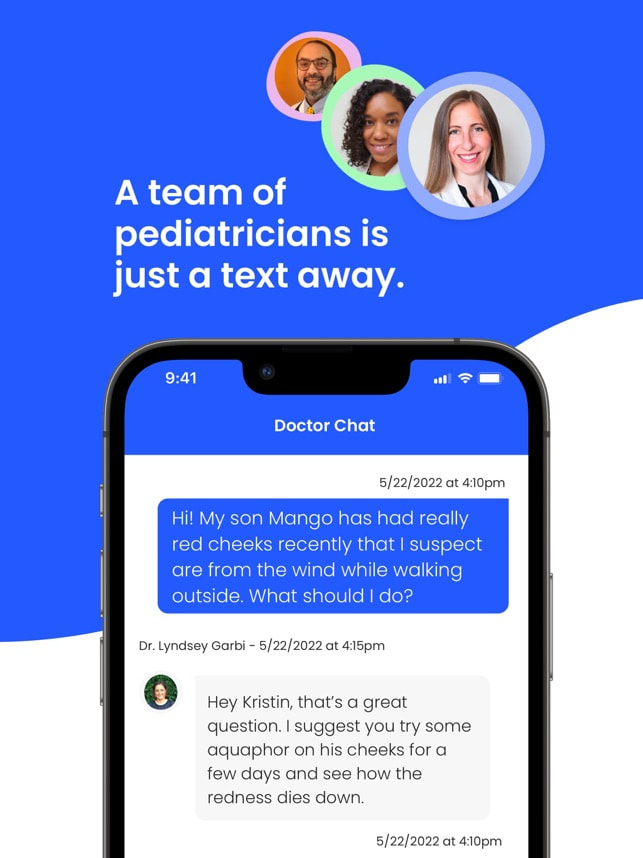|
As a former foster youth, you may have been thrust into the world of adulthood without being adequately prepared for the financial challenges that come with it. While there are many aspects to consider when planning your own budget, the good news is that you can create an effective budget with little knowledge. In this blog post, we’ll be discussing how to create a basic personal budget so that you can get on track financially and move forward in life.
Start Tracking Your Income and Expenses Knowing where your money is coming from and where it is going each month is essential for creating any type of budget. To do this, start by listing out all of your income sources (such as wages from work or government benefits). Then create a list of all your expenses (rent/mortgage payments, food costs, transportation costs etc.). Make sure to include both fixed (those that stay the same every month) and variable expenses (those that change every month) like utilities and entertainment costs respectively. Once you have determined how much money is coming in and going out each month you can begin setting up your budget accordingly. Steps to Successful Budgeting
Tips:
Creating a basic personal budget does take some discipline and dedication, but it is possible! With some careful planning and consistent tracking of income and expenses, former foster youth can set themselves up for success financially despite having limited resources available at their disposal! So don’t be discouraged—take those first steps today towards setting yourself up financially for life! You won’t regret it! Good luck! If you are a former foster youth, you may have questions about how to find a doctor or hospital that is in your insurance network. Navigating the health care system can be confusing and overwhelming, but it doesn’t have to be. In this blog post, we will provide you with tips on how to locate a medical provider that accepts your insurance.
Step 1: Check Your Insurance Card The first step in finding a doctor or hospital that is in your insurance network is to check your insurance card. This card will typically contain information on the company that provides your coverage, the type of plan you have, and contact information for customer service. It may also include a list of hospitals and doctors that accept your plan. Make sure to review this list carefully as it could save you time and money when seeking medical care. Step 2: Connect with Your Insurance Provider If the list of providers included with your insurance card does not seem comprehensive enough, don’t worry—you can always connect with your insurance provider for more detailed information. Call the customer service number on your card, or visit their member website. When you call them up, make sure to ask any questions you may have about which hospitals and doctors accept your plan as well as what services they offer. The customer service representative should be able to provide you with an updated list of providers who are within the network so that you can make the best decision for yourself and any dependents. Their online tool will likely be able to guide you to providers as well. Step 3: Check Online Resources In addition to contacting your insurance provider directly, there are also online resources available that can help you quickly find a doctor or hospital in your network. For example, many websites allow users to search by zip code for nearby providers who accept their specific type of plan. This is an especially helpful tool if you need to find a specialist or if there are no providers close by. IMPORTANT NOTE: If you go this route, be sure to ask them if they are "in-network" with your specific insurance plan. "Accepting" your plan but being "out-of-network" will likely increase your costs. Locating an appropriate doctor or hospital within an insurance network can be tricky but certainly not impossible! By following these three steps—check your insurance card, contact customer service at the company providing coverage, and use online resources—you will be well on your way to finding quality health care providers who fit your needs! With this knowledge under your belt, all that’s left is taking advantage of it! Good luck! As a former foster youth, it can be hard to know what a healthy relationship looks like if you were never or rarely exposed to one as a child. You do not have to be embarrassed by this, instead, you can use this as an opportunity to learn and grow.
A healthy relationship is built on the foundation of trust, respect, and communication. These three pillars are the key to any successful relationship – whether it is a romantic partnership or a friendship. We’re going to unpack each of these areas and give some tips for nurturing them in your relationships. Trust is essential in any relationship because it allows you to feel safe and secure, knowing that your partner has your best interests at heart. Trust also allows you to be vulnerable without fear of judgment or criticism. To build trust in your relationships, it’s important to be honest with each other and follow through on promises you make. It’s also important to find ways to show that you value the relationship by spending quality time together and creating meaningful memories. Respect is another important aspect of any healthy relationship. Respect means valuing each other’s opinions, listening without judgment, showing empathy, and understanding when someone needs space. When respect exists in a relationship, both partners can express their true selves openly and honestly without fear of being judged or rejected. To nurture respect within a relationship, it’s important to take responsibility for mistakes instead of pointing fingers or making excuses. It’s also helpful to practice active listening by giving your full attention when someone speaks, even if you don’t agree with what they have to say. Communication is key for maintaining healthy relationships because it allows both partners to understand each other better and resolve conflicts peacefully. Good communication involves finding the right balance between talking about yourself and actively listening to the other person without interruption or distraction. To improve communication within relationships, try using “I statements” like “I feel…” rather than accusatory language like “You always…” This helps keep conversations productive instead of argumentative while allowing both partners an equal voice in expressing themselves. Relationships require effort from both parties in order to be successful and fulfilling over time – but if you focus on building trust, respect, and strong communication skills within your relationships, chances are they will stand the test of time! If you need help getting started on this journey towards healthier relationships, talking with an experienced therapist can be an excellent way to gain insight into how these principles apply specifically to your life and learn how best to implement them into your own partnerships! Being in foster care can be a traumatic experience. Even if you have or had amazing foster parents or never faced abuse... even if you were only in foster care for one week, you still underwent separation from your biological family and that is trauma. Many former foster youth report feeling overwhelmed, scared, and confused about their experiences. It is important to remember that it is normal to feel these emotions and that there are ways to cope with the trauma of foster care.
1. Acknowledge Your Feelings The first step in coping with the trauma of foster care is to acknowledge your feelings. (If you need help figuring out what you're feeling, click here for a feeling wheel that I find helpful!) It’s important to recognize that you have experienced something difficult and that it’s okay for you to feel whatever emotions come up for you. When you can accept your feelings without judgement or criticism, it becomes easier to process them and work through them. 2. Identify People You Trust It can be incredibly helpful to reach out to people who you trust when dealing with trauma from foster care. These people could be biological or foster family members, friends, or professionals such as counselors or therapists (get a free week of virtual therapy with BetterHelp here). It is important to have a support system who will listen without judgement, who you feel safe around, and who can help guide you through your healing journey. Talking about your experiences can also help you gain insight into how your trauma may be impacting your life now so that you can start taking steps towards recovery. 3. Practice Self-Care Self-care is an important part of coping with the trauma of foster care. Taking time each day for activities like exercise, yoga, meditation, journaling, or connecting with nature can help reduce stress and anxiety levels while also promoting feelings of calmness and relaxation. Additionally, engaging in creative activities like drawing or painting can provide an outlet for self-expression while helping to manage difficult emotions like anger or sadness. Taking good care of yourself will allow you to better cope with the trauma of foster care and move forward on your healing journey. 4. Avoid Doing Things that Harm You Negative feelings, like those that stem from trauma, tend to make people do things that make them feel good in the moment but aren't good for them long-term. This includes eating disorders, addictions (like gambling, drugs, alcohol or sex), over-spending, and lacking healthy boundaries in relationships or work. If you are doing any of these things now, remind yourself that they may be hindering the real coping that needs to happen around your trauma. Make a plan -- with a counselor, if at all possible -- to stop. Moving forward, you can ask yourself, "does this help or hurt me?" and if the answer is hurt, you know now you don't need to participate in it. 5. Remind Yourself that You Deserve Love and Joy Find people who truly love you and have your best interests at heart and look for moments of true joy throughout your day. You may not have had love and joy growing up (which wasn't fair to you!), but don't let that make you believe you don't deserve it now. Say it now and if you need to, say it as a daily affirmation statement: "I deserve love and joy!" (But a note, don't let temporary happiness fool you for true joy.) The trauma from being in foster care can be overwhelming and scary but there are ways to cope and heal from these experiences. While your story is unique, interestingly, each of the things on this list are things even non-foster youth have a hard time with. So know, you are not alone in working through these things and it doesn't make you any less of a person because you aren't perfect at them. By acknowledging your feelings, reaching out for support from people who you trust, and practicing self-care activities like exercise, journaling, and creative expression -you will be able to take steps towards recovery from the trauma of foster care so that you can live a healthy life filled with love and joy! |
AuthorI'm a foster mom, bio mom, working mom, special needs mom, busy mom. I'm also married to my high school sweetheart, I'm a proud 23-year childhood cancer survivor, and I'm passionate about serving my community. More from FosterMamaArchives
March 2023
Categories
All
|



 RSS Feed
RSS Feed